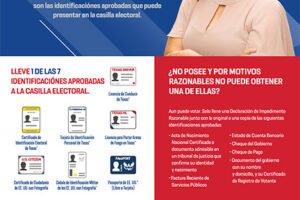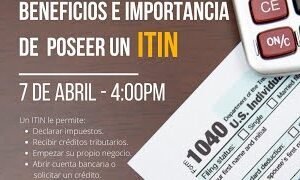How to become a U.S. citizen without speaking English

Becoming a U.S. citizen generally requires demonstrating a basic knowledge of English and U.S. history and government. through the naturalization examination.
However, there are some exceptions that allow certain individuals to take the civics test in their native language or to be exempted from the English requirement. These exceptions include:
- Age and time as a permanent resident:
- If you are 50 years of age or older at the time you apply for naturalization and have lived as a permanent resident (green card holder) in the United States for 20 years or more.
- If you are 55 years of age or older at the time you apply for naturalization and you have lived as a permanent resident in the US. for 15 years or more.
- Medical disabilities: If you have a physical or developmental disability or a mental disability that prevents you from meeting the English or civics requirement, you may be eligible for an exception. You will need to have a licensed physician or clinical psychologist complete Form N-648, “Medical Certification for Disability Waivers.”
- Additional exemptions: Individuals over 65 years of age who have lived as permanent residents in the U.S. for 20 years or more may also be eligible for special considerations related to the civics exam.
If you believe you qualify for any of these exceptions, it is recommended that you seek the advice of an immigration attorney or accredited organization to ensure that you meet all of the proper requirements and procedures.
Finally, it is important to note that while some individuals may be exempt from the English requirement, most individuals will still need to demonstrate a knowledge of U.S. history and government. through the civics exam, although it may be in their own language with an interpreter if they meet the age and time exceptions mentioned above.
What is needed to become a U.S. citizen in Spanish?
To become a U.S. citizen in Spanish, that is, to complete the naturalization process in the United States without having to demonstrate English skills (but instead using Spanish), a person must meet certain specific criteria. These are the circumstances under which it is permitted to take the civics test in Spanish:
- Age and time as a permanent resident:
- If you are 50 years of age or older at the time you apply for naturalization and have lived as a permanent resident (green card holder) in the United States for 20 years or more.
- If you are 55 years of age or older at the time you apply for naturalization and you have lived as a permanent resident in the US. for 15 years or more.
- If you are 65 years of age or older and have been a permanent resident for 20 years or more, you are also eligible for a simplified civics test.
- Medical Disability Waiver: Individuals with certain disabilities (physical, mental, or developmental) that preclude learning English or civics may apply for an exemption. In these cases, Form N-648, “Medical Certification for Disability Waivers,” completed by a licensed physician or clinical psychologist, must be submitted.
However, it is vital to understand that being exempt from the English language requirement does not automatically exempt you from the civics test. Those who qualify to take the test in Spanish due to their age and length of residency must take the civics test in Spanish, unless they also qualify for a disability exemption.
In addition to these considerations, there are other general requirements for naturalization, such as length of residence in the U.S., good moral character, among others, that all applicants must meet, regardless of language exemptions.
Since the naturalization process can be complex, it is always advisable to consult with an immigration attorney or accredited organization for proper guidance.
How much does it cost to become a U.S. citizen?
The cost to become a U.S. citizen can vary depending on individual status and certain exemptions. The following are the costs associated with the naturalization process in the United States:
- Naturalization Application Fee (Form N-400): The standard fee is $725. This amount includes a $640 processing fee for the application and an $85 fee for fingerprinting (biometrics). However, there are some exceptions and reductions:
- Applicants 75 years of age or older are exempt from the biometrics fee, paying only $640.
- A fee reduction may be requested for applicants whose family income is between 150% and 200% of the federal poverty level. In this case, the fee is reduced to $405.
- Applicants facing financial hardship may apply for a full fee waiver by filing Form I-912.
- Additional expenses: Although the application fee is the main expense, there are other costs that may arise, such as:
- Legal fees if you decide to hire an immigration attorney to help you with the process.
- Costs related to obtaining documents, such as birth certificates, criminal records, translations, among others.
- Travel to attend the naturalization interview and swearing-in ceremony.
- Exceptions and exemptions: As mentioned above, some applicants may qualify for fee reductions or full exemptions. It is essential to review the current U.S. Citizenship and Immigration Services (USCIS) guidelines for determining eligibility.
It is important to note that rates are subject to change. Therefore, it is always advisable to consult the official USCIS website or contact the agency directly for the most up-to-date information on fees and requirements before submitting any application.
Can U.S. citizenship be purchased?
No, you cannot buy U.S. citizenship. United States citizenship is a privilege and must be obtained by following the procedures and legal requirements established by the United States Citizenship and Immigration Services (USCIS).
There are several ways to obtain U.S. citizenship, the most common being:
- By birth: Persons born in the United States or its territories are U.S. citizens by birth.
- Naturalization: The process by which a person who was not born in the United States and is not a U.S. citizen by birth or parentage may become a citizen. This process involves meeting certain requirements, such as having a permanent residence (green card), residing in the country for a specific period of time, demonstrating good moral character, passing a civics and English test (although there are exceptions based on age and length of residence), among others.
- By Kinship: Foreign-born persons of at least one U.S. citizen parent may be entitled to citizenship rights, depending on certain conditions.
Although citizenship cannot be “bought”, it is important to note that some programs, such as the EB-5 Visa Program, allow foreign investors and their families to obtain permanent residency (green card) by making significant investments in projects that create jobs in the United States. However, even after obtaining residency through this program, the investor and his or her family must still meet all naturalization requirements to become citizens.
Any offer or scheme that promises to “buy” U.S. citizenship is likely a fraud and can have serious legal consequences for both the seller and the buyer. It is essential to approach the immigration and naturalization process seriously and always follow the proper legal channels.
What questions are asked in the U.S. citizenship test?
The U.S. citizenship test, also known as the naturalization test, has two main components: an English component and a civics component.
- English test: Evaluates the applicant’s ability to read, write, speak and understand English. The questions are basic and relate to the applicant’s life, such as family, work and background.
- Civics Test: Tests the applicant’s knowledge of U.S. history and government. The applicant is asked 10 questions, which are chosen from a list of 100 possible questions. To pass, the applicant must answer at least 6 of the 10 questions correctly.
Some of the civics questions that might be asked (and their answers) include:
- What is the supreme law of the land? Answer: The Constitution.
- What does the Constitution do? Answer: Establishes the government.
- How many senators are there in Congress? Answer: One hundred (100).
- How long do we elect senators? Answer: Six (6) years.
- Name one of the two longest parts of the Constitution. Answer: The Bill of Rights.
- Which movement tried to put an end to alcoholic drinking practices? Answer: Prohibition.
- Who was the first president? Answer: George Washington.
- During the Cold War, what was the main concern of the United States? Answer: Communism.
It is important to mention that questions and answers may change over time and administrations. It is essential to study the most recent official material provided by the United States Citizenship and Immigration Services (USCIS) before taking the exam.
USCIS provides a complete list of the 100 possible questions and answers in several languages, including Spanish.
What happens if I fail the citizenship test?
If you fail the citizenship test on your first appointment, don’t worry, you still have a second chance.
The United States Citizenship and Immigration Services (USCIS) allows you to take a second test. Here’s what happens:
- Rescheduling: If you do not pass any part of the naturalization test at your first interview, you will have another chance. USCIS will reschedule the interview within 60 to 90 days after your first interview.
- Second Chance: During the second interview, you will only be tested on the part you did not pass the first time. For example, if you passed the English portion but did not pass the civics portion on your first appointment, you will only be asked civics questions on the second appointment.
- If you fail again: Unfortunately, if you fail the exam the second time, your naturalization application will be denied. However, you may file a new application for naturalization in the future. It is important to consider getting additional help or preparation classes before trying again.
- Fees: If you decide to file a new application, you will have to pay the application fees again, unless you qualify for a fee waiver.
- Reconsideration: In some cases, if you believe there was a mistake in the USCIS officer’s decision, you can request a “reconsideration hearing” with a different officer. It is advisable to seek the advice of an immigration attorney to evaluate this option.
It is vital to prepare well before the exam and, if necessary, seek out resources or preparation classes to help you succeed in the naturalization process.






